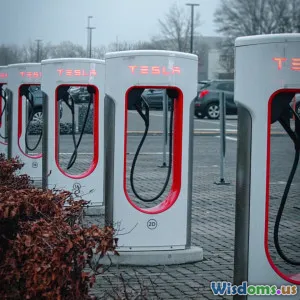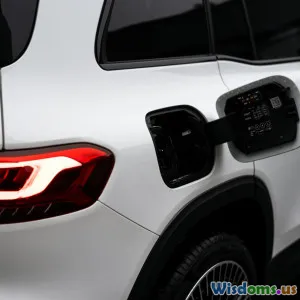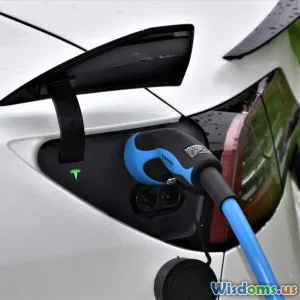
Connected Cars: A New Era
6 min read Explore the transformative potential of connected cars in the automotive industry, enhancing convenience, safety, and technology integration. (0 Reviews)
Connected Cars: A New Era
The automotive industry is undergoing a profound transformation with the advent of connected cars. These vehicles, equipped with internet connectivity and smart technology, are not just modes of transportation; they are becoming integral to our daily lives. This article will explore the definition of connected cars, their benefits, challenges, and the future of this innovative technology.
What Are Connected Cars?
Connected cars refer to vehicles that can connect to the internet and communicate with other devices both inside and outside the vehicle. This technology allows for real-time data exchange, enabling features such as navigation, entertainment, diagnostics, and even vehicle sharing. Connected cars utilize various technologies, including Bluetooth, Wi-Fi, and cellular networks, to facilitate communication.
Benefits of Connected Cars
1. Enhanced Safety
One of the critical advantages of connected cars is their potential to improve road safety. With features such as automatic emergency braking, lane departure warnings, and collision avoidance systems, connected cars can help prevent accidents. Moreover, vehicles can communicate with each other and infrastructure to share critical information about road conditions, traffic congestion, and hazards, allowing for proactive safety measures.
2. Improved Convenience
Connected cars offer unparalleled convenience for drivers. Features such as remote vehicle access, in-car navigation, and real-time traffic updates can significantly enhance the driving experience. Additionally, drivers can control various vehicle functions from their smartphones, such as starting the engine, locking/unlocking doors, or checking fuel levels, providing peace of mind and ease of use.
3. Advanced Infotainment Systems
The integration of connected technology has transformed traditional infotainment systems into comprehensive platforms that offer streaming services, social media access, and voice-activated controls. Passengers can enjoy a seamless entertainment experience while on the road, making long journeys more enjoyable.
4. Optimized Maintenance and Diagnostics
Connected cars can monitor their health in real time and send alerts to drivers when maintenance is needed. This proactive approach to vehicle care can reduce the risk of breakdowns and extend the life of the vehicle. Additionally, manufacturers can gather data on vehicle performance to improve future designs and identify common issues.
Challenges Facing Connected Cars
Despite the numerous benefits, the rise of connected cars also presents several challenges.
1. Security Concerns
As cars become more connected, they also become more vulnerable to cyberattacks. Hackers may gain access to vehicle systems, compromising safety and privacy. It is essential for manufacturers to implement robust security measures to protect against unauthorized access.
2. Data Privacy
Connected cars generate vast amounts of data, including location information, driving habits, and personal preferences. This raises concerns about data privacy and how this information is used or shared. Transparency and clear privacy policies are crucial to gaining consumer trust.
3. Infrastructure Limitations
The effectiveness of connected cars relies heavily on the availability of supporting infrastructure, such as smart traffic lights and reliable internet coverage. In many areas, particularly rural regions, the necessary infrastructure may be lacking, hindering the full potential of connected vehicle technology.
The Future of Connected Cars
The future of connected cars is bright, with advancements in technology and growing consumer interest. Automakers are increasingly investing in research and development to enhance connectivity features, improve safety measures, and explore autonomous driving capabilities. As vehicle-to-everything (V2X) communication becomes more prevalent, connected cars will play a crucial role in smart city initiatives, contributing to efficient transportation systems and reduced environmental impact.
A Shift Toward Sustainability
Connected cars can also facilitate a shift toward more sustainable transport options. By optimizing routes and reducing congestion, these vehicles can help decrease emissions and fuel consumption. Furthermore, the data collected from connected cars can assist urban planners in developing more efficient and sustainable transportation infrastructures.
Conclusion
Connected cars are ushering in a new era in the automotive industry, offering enhanced safety, convenience, and technology integration. As we continue to embrace this innovation, addressing security and privacy concerns will be essential to ensure a smooth transition. The future is promising, with connected vehicles poised to redefine our driving experience and contribute to a smarter, more sustainable world.
Rate the Post
User Reviews
Popular Posts




















